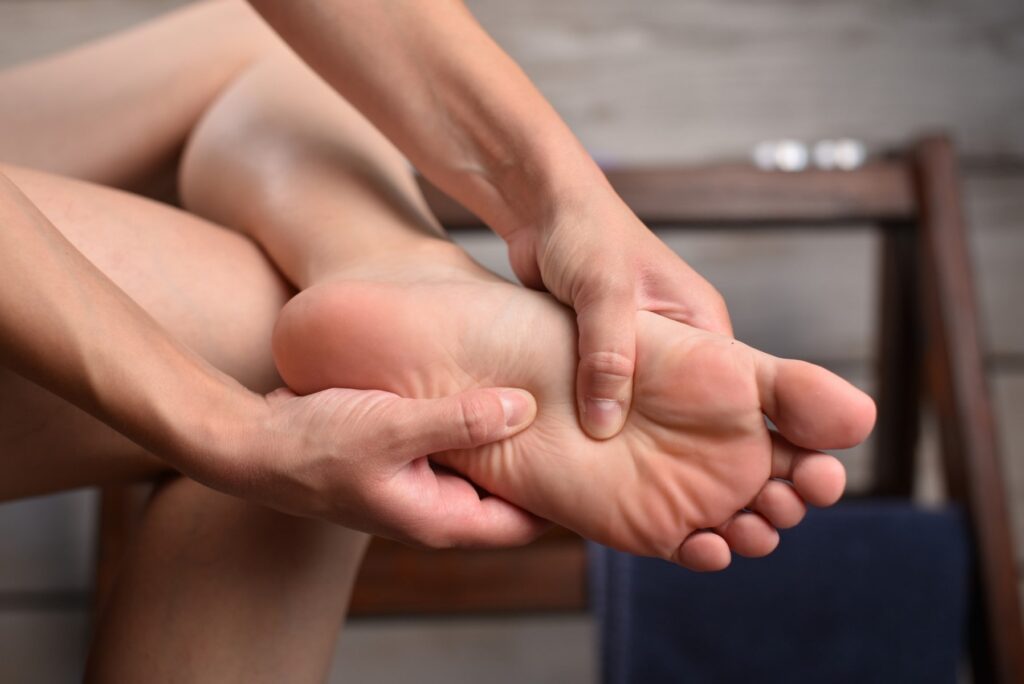Numbness in the hands and feet is a common symptom that many people experience at some point in their lives. It can be caused by a variety of factors, such as poor circulation, nerve damage, or certain medical conditions. Numbness in the hands and feet can be uncomfortable and can affect a person’s ability to perform daily activities. However, there are several steps that can be taken to prevent numbness in the hands and feet. We shall go into great depth about these stages in this blog.
MAINTAIN A HEALTHY WEIGHT
Excess weight can put pressure on the nerves and blood vessels in the body, which can lead to numbness in the hands and feet. Maintaining a healthy weight through a balanced diet and regular exercise can help prevent numbness in these areas. It is also important to avoid smoking and limit alcohol consumption, as both of these habits can contribute to poor circulation and nerve damage.
EXERCISE REGULARLY
Regular exercise is important for maintaining good circulation and preventing numbness in the hands and feet. Aerobic exercise, such as walking, running, or cycling, can help improve blood flow and reduce the risk of nerve damage. It is also important to stretch regularly, especially before and after exercise, to help prevent muscle strain and injury.

MAINTAIN PROPER POSTURE
Poor posture can put pressure on the nerves in the neck and back, which can lead to numbness in the hands and feet. Maintaining proper posture, especially when sitting for long periods of time, can help prevent this. It is important to sit with the back straight, shoulders relaxed, and feet flat on the ground. Using an ergonomic chair and desk can also help improve posture and reduce the risk of numbness.
TAKE BREAKS WHEN PERFORMING REPETITIVE TASKS
Performing repetitive tasks, such as typing or assembly line work, can put pressure on the nerves in the hands and feet and increase the risk of numbness. Taking frequent breaks to stretch and move the hands and feet can help prevent this. It is also important to use proper ergonomics when performing these tasks, such as using a wrist rest or adjustable chair.

WEAR COMFORTABLE SHOES
Wearing shoes that are too tight or do not provide enough support can contribute to poor circulation and nerve damage in the feet, which can lead to numbness. Wearing comfortable shoes that fit well and provide adequate support can help prevent numbness. It is also important to avoid wearing high heels for extended periods of time, as they can put pressure on the nerves in the feet and increase the risk of numbness.
STAY HYDRATED
Dehydration can cause the blood to thicken and reduce circulation, which can lead to numbness in the hands and feet. Drinking plenty of water throughout the day can help prevent this. It is also important to avoid caffeine and alcohol, as they can contribute to dehydration and increase the risk of numbness.
MANAGE UNDERLYING MEDICAL CONDITIONS
Certain medical conditions, such as diabetes, multiple sclerosis, and peripheral artery disease, can increase the risk of numbness in the hands and feet. Managing these conditions through proper treatment and medication can help prevent numbness. It is important to work closely with a healthcare provider to manage these conditions and prevent complications.
Hands and foot numbness can be a frustrating and uncomfortable ailment. In these regions, numbness can be avoided.
If you have numbness in your hands or feet, it is crucial to consult your healthcare practitioner to identify the underlying reason and create a personalized treatment strategy for you. To make an appointment with Specialty Care Clinics, call 469-545-9983
